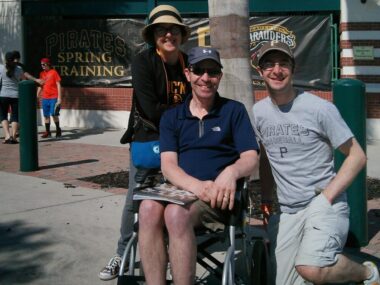Spanish Modified Story Memory Technique Improves Cognitive Performance in Mexican Patients with MS, Study Says
Written by |

The Spanish version of the modified Story Memory Technique improves learning and life satisfaction of Mexican patients with multiple sclerosis (MS), a new study suggests.
The tool, developed by the Kessler Foundation, has the potential to address the lack of cognitive rehabilitation interventions that are culturally appropriate for the diverse Hispanic U.S. population, the researchers said.
The study, “Efficacy of the Spanish modified Story Memory Technique in Mexicans with multiple sclerosis: A pilot randomized controlled trial,” was published in the journal NeuroRehabilitation.
People with MS, According to the Foundation, experience cognitive and memory problems, namely in learning new information and remembering everyday tasks. The cognitive decline seen in MS patients usually is specific and subtle, making these patients prime subjects for rehabilitation interventions that target specific cognitive functions, such as learning a new task or processing speed.
The modified Story Memory Technique (mSMT) was developed by Nancy Chiaravalloti, PhD, director of the Center for Neuropsychology and Neuroscience Research and the Center for Traumatic Brain Injury Research at Kessler Foundation. She also is research professor of physical medicine and rehabilitation at Rutgers University, New Jersey Medical School.
The mSMT is an evidence-based English-language cognitive intervention that consists of 10 sessions. It has three specific segments focused on improving the patient’s ability to learn and retain new information via imagery and context. The two final sessions of the protocol focus on applying the new skills in daily life.
Previous research showed that mSMT is effective in improving MS patients’ learning and memory performance, and that it also could make brain processing more efficient.
Now, Kessler Foundation researchers, in collaboration with the Mexican MS Foundation and the Basque Foundation for Science, in Bilbao, Spain, translated and adapted the mSMT protocol to Spanish, and assessed its effectiveness as a cognitive rehabilitation tool in Mexican patients with MS.
“While evidence-based cognitive rehabilitation treatments are available in English, the lack of such interventions in Spanish is an important barrier to care for Hispanics with MS,” the researchers wrote.
The study included 20 relapsing-remitting MS patients, who were assigned randomly to receive the mSMT intervention (treatment group, 10 patients), or to receive 10 sessions of similar content and presentation (control group, 10 patients). All patients were evaluated through neuropsychological tests, at study start and follow-up.
Results showed that participants who received the Spanish mSMT had significant improvements in learning and life satisfaction, compared to patients in the control group.
Moreover, the memory performance and the families’ perception of patients’ functioning also were affected positively.
Overall, “the Spanish mSMT showed preliminary efficacy in improving learning deficits in Mexicans with MS,” the researchers wrote.
“This is an example of how cultural adaptation can be an effective way to extend evidence-based interventions to non-English speaking populations,” Denise Krch, PhD, first author of the study, said in a press release.
“While further testing is needed, we anticipate that this adaptation of the modified Story Memory Technique will be applicable to the diverse Spanish-speaking population in the U.S., in addition to those with Mexican heritage,” she said.
The team believes that the Spanish version of the mSMT “may also prove useful in the rehabilitation of Spanish-speakers with cognitive deficits caused by traumatic brain injury,” Krch said.
Notably, the U.S. Hispanic population reached 59.9 million in 2018.


